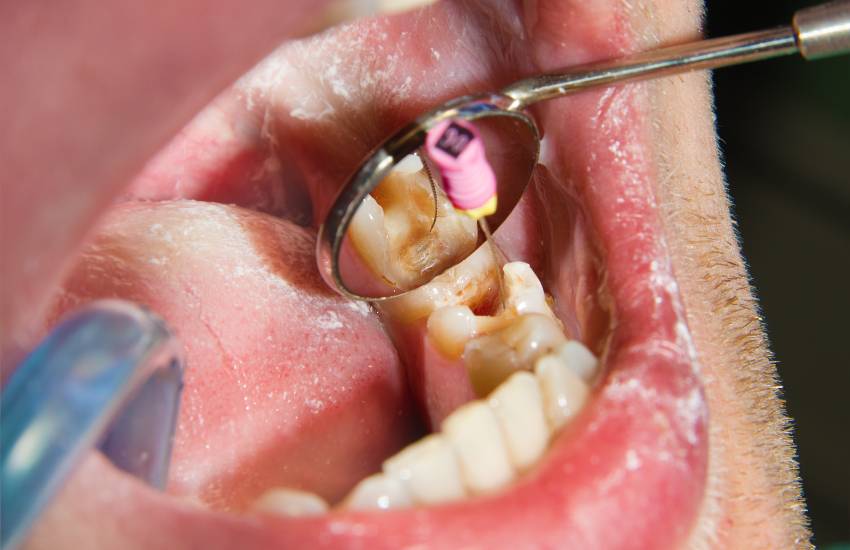Root Canal Treatment


Call Us Today
What is Root Canal Treatment?
Root canal treatment refers to a dental procedure that replaces a tooth’s damaged or infected pulp with a root filling. The pulp is the tooth’s lifeline – its vessels, tissue fibres and nerves in the central hollow of the tooth keep it alive. The procedure to replace this damaged or infected pulp is also known as endodontic treatment.
The success rates for endodontic treatment are generally high. About 90 to 95 per cent of people who undergo root canal treatment can expect a functional tooth after the treatment. The treated tooth should last a very long time, provided that you maintain good oral hygiene, avoid consuming too much sugar and have regular dental check ups. Of course, no therapy or replacement will last as well as a healthy tooth.
Symptoms of tooth pulp damage or disease
A diseased tooth pulp may cause inflammation. The symptoms of a damaged or diseased tooth pulp may include:
unprovoked or spontaneous pain
sensitivity to hot and cold drinks and foods
pain when biting or chewing
swelling of the gum near the affected tooth
facial swelling
Root canal procedure
You may need more than one visit to complete the root canal treatment, depending on the difficulty of the procedure. The exact procedure chosen by your dentist may differ from the procedure outlined here. Ask your dentist for further information.
Root canal treatment has four main aims:
- removing active decay and infection – any old fillings, tooth decay, infected nerve tissue, pus and debris are removed
- shaping the canals – to be filled well, the canals within the tooth root need to be shaped into smooth, hollow tunnels that are free of irregularities where residual bacteria may sit. This shaping process involves small instruments, special disinfectants and medication. It may take a few weeks to months for these solutions to take maximum effect against stubborn bacteria within the tooth, and this step may have to be repeated several times
- filling the canals – to prevent bacteria from re-infecting the empty canals in your tooth, they are permanently sealed with a long-lasting barrier material
- making the tooth functional again – to make sure no bacteria from the mouth can leak back into the tooth, a large, well-sealed restoration is put on the tooth. Teeth that require root canal treatment have sometimes lost a lot of tooth structure due to previous decay or cracks, and may require further protection in the form of posts, crowns or other similar materials.
FAQs
Ans: A root canal treatment is needed when the pulp (the soft tissue inside your tooth) becomes infected or inflamed due to deep decay, repeated dental procedures, or a crack in the tooth. The treatment helps save the tooth and prevent further infection.
Ans: Modern root canal treatments are virtually painless. With advancements in anesthesia and technology, the procedure is typically no more uncomfortable than getting a routine filling.
Ans: A root canal treatment usually takes one or two visits, depending on the condition of the tooth. Each session can last between 60 to 90 minutes.
Ans: During a root canal, the dentist removes the infected pulp, cleans and shapes the inside of the tooth, and then fills and seals it. A crown is often placed afterward to protect and restore the tooth’s function.
Ans: After the root canal, your tooth may look the same or better if a crown is applied. The procedure helps preserve the tooth’s natural appearance and functionality.
Ans: With proper care, a root canal-treated tooth can last a lifetime. Good oral hygiene and regular dental checkups are key to maintaining its health.
Ans: The main alternative to a root canal is tooth extraction. However, extracting the tooth may lead to more costly procedures like implants or bridges to restore function and appearance.
Ans: The cost of root canal treatment varies based on factors like the tooth's location and the complexity of the case. Contact our clinic for a detailed consultation and estimate.

